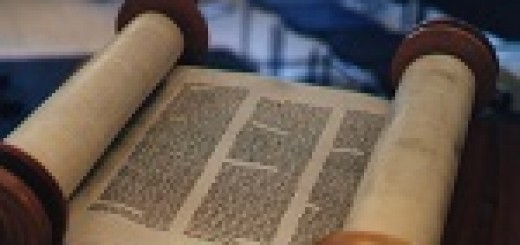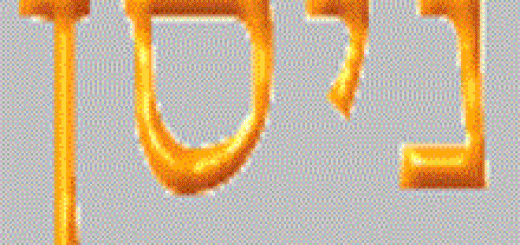By Avner Friedmann
The Torah states[1]: “you shall dwell in Sukkoth (booths) for seven days; every native among you shall dwell in Sukkoth. In order that your generations may know that I settled the children of Israel in Sukkoth (booths) when I took them out of the land of Egypt; I am HaShem, your G-d.” Rashi tells us[2] that the booths commemorate the Clouds of Glory; the seven clouds that encompassed and protected the Children of Israel in the Wilderness.
But what is so special about the Clouds of Glory that a special holiday was established in commemoration of them? Why isn’t there a special holiday to commemorate the Manna (heavenly food) that materialized every week day from heaven, or to commemorate the well of Miriam which accompanied the Jewish people in their travels in the desert? Moreover, since it is HaShem our G-d who took us out of the land of Egypt, isn’t it reasonable that He would provide us with the basic shelter we needed?
However, though HaShem performed many acts of kindness in the desert for the Jewish people, the Clouds of Glory were not merely meant for shelter. Rather, they were a special gift that went beyond that. Indeed, they were proof of HaShem’s love for Israel. This is similar to a person who gives a very precious diamond to his beloved; so special that he wants the children and grandchildren to also be aware of it, as the verse states, “So that your generations may know”. When we dwell in the Sukkah we acknowledge HaShem’s kindness toward us, in that He gave us this precious gift, and by dwelling in it, we show Him how much we love Him in return.
There is an even deeper connection between the Clouds of Glory and the Sukkah. The Biblical holidays are not meant to be celebrated just to commemorate important events in our history. They carry an eternal message and are relevant to us in the here and now.
The Clouds of Glory represent the root and foundation of our faith (Emunah), and are relevant to the very essence of the holiday of Sukkoth[3]. The Clouds of Glory represent the Holy Shechinah (HaShem’s indwelling presence) that protected us from harsh conditions and the forces of the Sitra Achera (The “Other Side” of unholiness) in the Wilderness, and that continues to shelter us to this very day. Sometimes, as in the wilderness, this protection is revealed, whereas other sometimes, such as today, it may be hidden. However, it is always present, as written[4]: “Behold, the Guardian of Israel neither sleeps nor slumbers”.
The holiday of Sukkoth instills the fundamental belief in HaShem’s constant and personal supervision (Hashgacha Pratit) into our hearts and minds, as King David stated[5]: “Though I walk through the valley of the shadow of death, I will fear no evil, for You are with me”.
The Holy Zohar[6] calls the Sukkah “The shadow of Faith (Emunah)”. When we dwell in the Sukkah and fulfill the mitzvot of the day, we draw the same G-dly light that surrounded Israel in the Wilderness into the Sukkah. HaShem’s Divine Presence spreads its wings over us, like a loving mother protecting her beloved children. For seven days the Sukkah serves as a place of holiness and sanctity. This allows the seven spiritual guests (Ushpizin), Avraham, Yitzchak, Yaakov, Moshe, Aharon, Yosef and David, who correspond to the seven Clouds of Glory, to join us in the Sukkah, each on his designated day.
Ultimately, faith (Emunah) is the root of all the mitzvot, as stated[7]: “All your mitzvot are faith (Emunah)”. In this regards the mitzvah of Sukkah carries the same weight as all the other mitzvot[8]. Unlike other mitzvot, which generally are associated with specific parts of our body, when we dwell in the Sukkah, the mitzvah completely encompasses us from head to toe. We, quite literally, are IN the mitzvah! Just by sitting and eating in it, we fulfill the mitzvah of Sukkah, and the more we sit, eat, and breathe the atmosphere of the Sukkah, the more the clarity of faith (Emunah) is instilled into us.
May HaShem, in His unbounded mercy, aid us in deepening our faith and trust in Him as a constant way of life, and through this, may we merit to behold the true and complete redemption, through our righteous Moshiach, speedily in our days. Amen
[1] Emor 23:42.
[2] On this verse. Gemara Succa 11b.
[3] Netivot Shalom, Succot Ma’amar Sheni.
[4] Psalms 121:4.
[5] Psalms 23:4.
[6] Emor 103b.
[7] Psalms 119:86.
[8] Netivot Shalom, Succot Maamar shni.






















